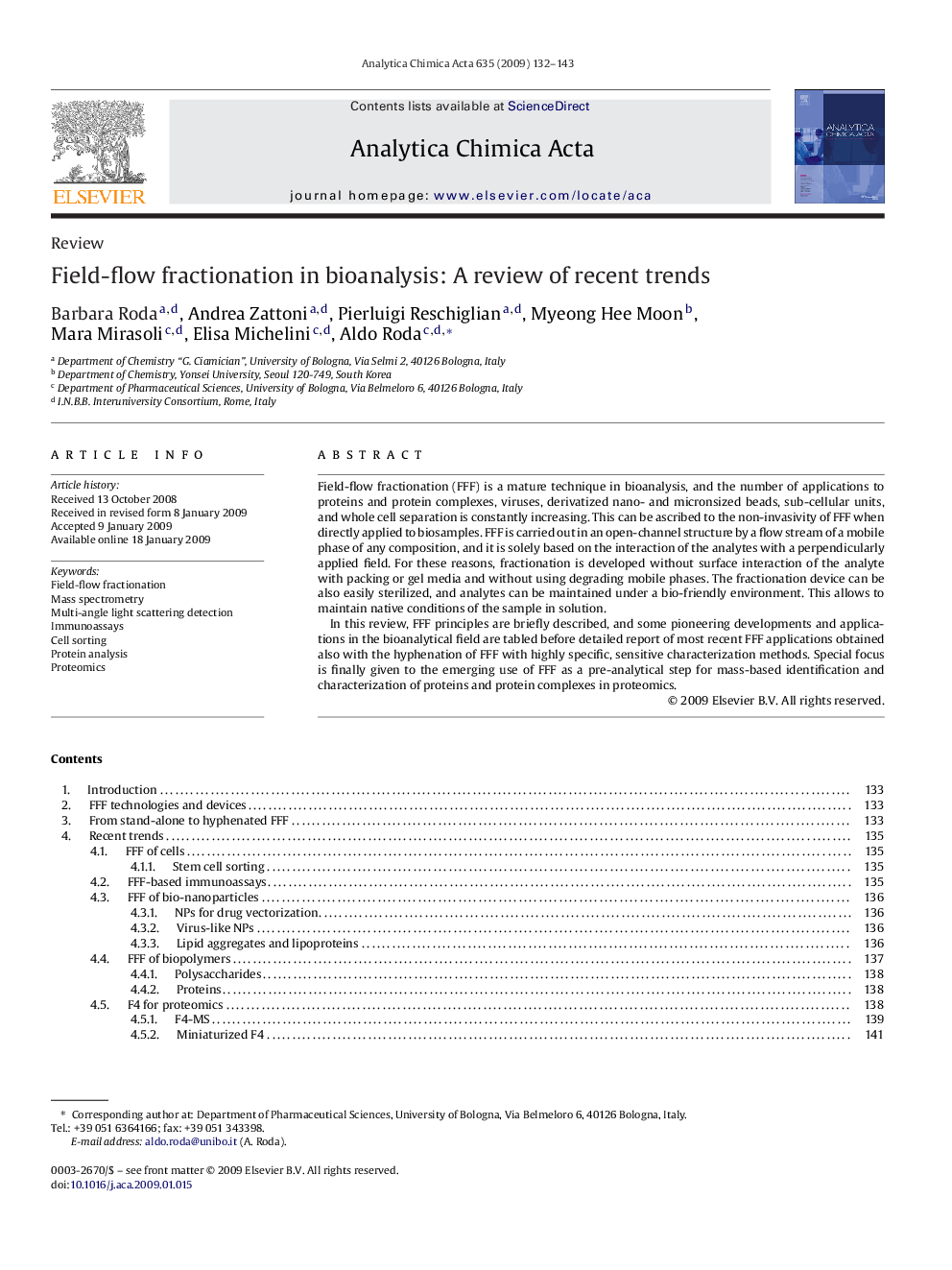| Article ID | Journal | Published Year | Pages | File Type |
|---|---|---|---|---|
| 1168782 | Analytica Chimica Acta | 2009 | 12 Pages |
Field-flow fractionation (FFF) is a mature technique in bioanalysis, and the number of applications to proteins and protein complexes, viruses, derivatized nano- and micronsized beads, sub-cellular units, and whole cell separation is constantly increasing. This can be ascribed to the non-invasivity of FFF when directly applied to biosamples. FFF is carried out in an open-channel structure by a flow stream of a mobile phase of any composition, and it is solely based on the interaction of the analytes with a perpendicularly applied field. For these reasons, fractionation is developed without surface interaction of the analyte with packing or gel media and without using degrading mobile phases. The fractionation device can be also easily sterilized, and analytes can be maintained under a bio-friendly environment. This allows to maintain native conditions of the sample in solution.In this review, FFF principles are briefly described, and some pioneering developments and applications in the bioanalytical field are tabled before detailed report of most recent FFF applications obtained also with the hyphenation of FFF with highly specific, sensitive characterization methods. Special focus is finally given to the emerging use of FFF as a pre-analytical step for mass-based identification and characterization of proteins and protein complexes in proteomics.
